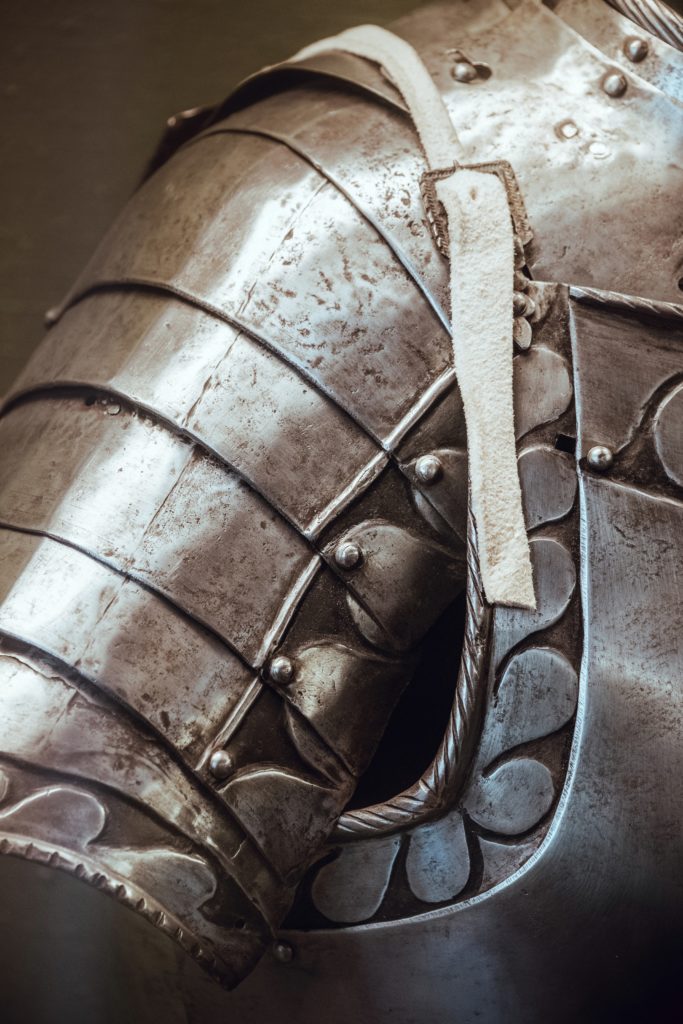
I just got back from watching Mad Max: Fury Road .
[SPOILER ALERT]
It didn’t take me too long to wonder if I had made a mistake–it’s a bit over the top. The world into which we are dropped is pretty terrible–I expected it to be terrible, but not that gross. But the filmmakers are building upon so many other movies in this genre since the original post-apocalyptic Mad Max and its sequel, Road Warrior, that they obviously felt they needed to ratchet up the terribleness a notch or two. I can’t say that I ever got to the point where I felt all the dirt, defects, and disgusting were worth it, but the movie does make a pretty important and interesting religious statement.
Mad Max? Religious?
Mad Max: Fury Road–Christian Imagery
Yes, the terms hope, redemption, and salvation are uttered by the characters and the story is built upon these religious ideas.
It’s an allegory. We live in a world that’s pretty horrible–scarcity, exploitation and religious fanaticism are the order of the day.
At the top are the exploiters. Their power is maintained through a combination of withholding life-giving water, and other physical necessities, occasionally offering a meager “gift” from their bounty. The exploiters let the oppressed fight each other for these gifts and through promises of rewards in the afterlife, they buy loyalty and sacrifice in this world.
These are the basic evils that concern your average middle-class North American and, more so, the world’s poor.
Sehnsucht
Human beings long for a better world–C. S. Lewis uses the German word Sehnsucht to describe this inherent “longing,” or “yearning” that results from knowing we live in a world that we know this isn’t the way it is supposed to be.
Imperator Furiosa, played by Charlize Theron, is a character of Sehnsucht; her dissatisfaction with the world comes from a childhood memory of “The Green Place”–read, The Garden of Eden. It is her mission to get back to the green place with four beautiful women who have been used as breeders for the corrupt warlord of The Citadel.
It is interesting that where the Biblical narrative moves from a garden in Genesis to a city in The Book of Revelation, the story in the new Mad Max movie moves from city to garden. This reversal is central to the religious statement at the centre of the film.
Heroic Women
One of the things I like about this movie is that the women are actually heroic rather than passive victims waiting to be rescued by a man. This is also a reflection of a positive trend in our culture. There are two men that help out a lot, but the success and fulfillment of the women does not rest solely in the hands of the male heroes.
Max and Furiosa are equally heroic and they even swap traditional gender roles; Furiosa is the better shot, where Max is the healer. The rest of the band of heroes are comprised of young and beautiful, but also capable, girls and the old, sandy, wizened, desert women which are also formidable in their fight against the exclusively male band of evil guys.
Firiosa is going to lead her crew, sans Max, across the salt flats where they hope they can find a place to begin life again and perhaps plant the invaluable seeds that they carry. They are, allegorically, going to re-establish the Garden, but, in the context of the movie, the garden is blended into the future hope of Heaven.
Max turns them from this goal toward Eden/Heaven. It’s not certain that such a place exists. What is certain is that The Citadel has enough water to begin again. They turn away from uncertainty toward certainty.
They return to The Citadel, conquer the bad guys and distribute water to the thirsty masses.
Allegory of Hope
Mad Max: Fury Road is an allegory that describes how a lot of people in our culture understand hope, redemption and salvation.
Our world has some big problems and we need salvation from the rich, powerful, or religious exploiters if we are going to have a better world. But we no longer believe our redemption will come from an afterlife–our only hope is to do it ourselves, here and now. This will take courage and sacrifice (and men and women working together), but we just might have a chance if we get out from under the control of the 1% and the religious leaders who exploit the rest of us for their own personal gain.
[click_to_tweet tweet=”In a nutshell, Mad Max: Fury Road shows that, rather than risk an uncertain Heaven, we’ll take a degraded Eden of our own making. #MadMaxFuryRoad #FuryRoad #MadMax” quote=”In a nutshell, Mad Max: Fury Road shows that, rather than risk an uncertain Heaven, we’ll take a degraded Eden of our own making. “]
Although many found this movie entertaining, I’m afraid they won’t find it satisfying. The Sehnsucht we are experiencing will not be satisfied by crawling out from under the thumbs of the exploiters. Nor will it result from a hard flight to return to the Garden.
Our true longings will only be satisfied when we live in the city for which we were made–the City described in Revelation 21.




